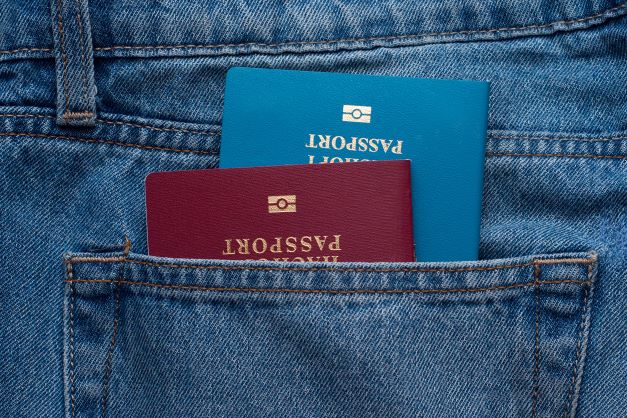It was thought that Brexit would trigger a rush of people who wanted to secure dual citizenship, particularly those who could claim joint UK and Irish heritage.
However, the actual number of people now holding dual citizenship is just 731,316, with this accounting for a mere 1% of the total UK population.
Of course, dual citizenship offers numerous benefits to individuals, especially those of you to regularly travel between the various countries that accept dual citizenship. Here’s a breakdown of some of the main advantages of dual citizenship:
#1. The Freedom to Travel
Many of the countries that accept dual citizenship are located in Europe, which is why a large number of Brits were expected to apply for dual citizenship (where applicable) after Brexit ended the freedom of movement between the UK and member states.
Certainly, dual citizenship negates the restrictions imposed by Brexit, while potentially opening up travel routes to locations such as Barbados, Canada, and South Africa (and many more).
There are also business advantages, of course, as entrepreneurs with dual citizenship can travel more freely and potentially unlock a wider range of markets across the globe.
Similarly, travelling entrepreneurs and employees can move back and forth with far greater ease, making the process of returning to see family back home much simpler.
#2. Eligibility for Services
While the NHS provides free healthcare at the point of service for UK nationals, individuals who aren’t residents or classed as citizens are typically charged 150% of the national NHS rate to receive treatment.
However, if you’re somebody who lives outside the UK but boasts dual citizenship, you can access all NHS services for free while also qualifying for several additional benefits outside of healthcare.
These include the freedom to vote in political elections, which is a right reserved for residents and citizens. This is a notable privilege, as even the majority of EU nationals who lived and worked in the UK at the time of the Brexit referendum were unable to cast a vote.
Dual citizenship also infers land ownership rights too, which is great news for both investors and those who want to set up a home in the UK.
#3. Learn About Other Cultures
This is another huge benefit, as cultural capital is a valuable resource that can help you and your children to achieve success wherever they reside in the world.
Often, cultural capital involves knowledge of the different cultures that exist around the world. Through dual citizenship, you’re able to build this effectively by easily immersing yourself in situations that expose you to diverse cultures, languages, and economic policies.
For example, you can use dual citizenship to study in a country outside of the UK, creating a unique opportunity to travel and experience a completely different culture while also gaining significant educational value. You can subsequently work in this country and build wealth, before passing this knowledge on to your children and dependents.
The Last Word
With these benefits in mind, the next step is to consider your application for dual citizenship. However, before you get started, try to keep in mind your core motivation for gaining dual citizenship, whether this is to explore new business markets or provide greater opportunities for your children.
Also, give thought to the needs of your family (where relevant) and your long-term goals, as creates a level of preparedness that can stand you in good stead over time.

